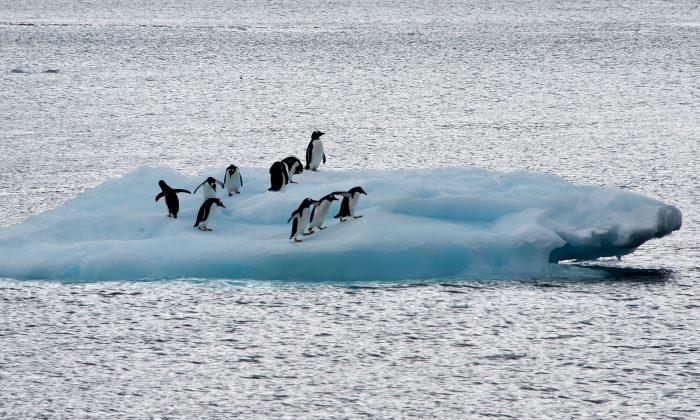An estimated 150,000 Adélie penguins have died in Antarctica due to a massive iceberg that has left the bay they live in landlocked.
The iceberg, named B09B, has been covering the Commonwealth Bay since 2010 according to researchers with Australia’s University of New South Wales, forcing the penguins to travel as far as 40 miles to find food.
The Commonwealth Bay, a huge area that didn’t freeze over due to strong winds, provided the Adélie penguin colonies with perfect conditions for food collection. The iceberg now occupying the area has an estimated area of 700,000 acres.
The researchers, who collected their data between 2013 and 2014, say that the Adélie penguin population has been reduced to just a few thousand.
“Over the past five years the regional changes triggered by iceberg B09B have led to an order of magnitude decline in Adélie Penguin numbers and catastrophic breeding failure in comparison to the first counts undertaken by Mawson a century ago,” Dr. Kerry-Jayne Wilson of the West Coast Penguin Trust, lead author of the research, said in a statement.
The colony was originally identified by Sir Douglas Mawson during his Australian Antarctic Expedition, 1911-1914.
Wilson was one of the researchers who collected the data on the penguins. “It was heart wrenching to see the impact of the fast ice on the penguins,” Wilson said. “The normally noisy and aggressive Adélie penguins were so subdued they hardly acknowledged our intrusion into their realm. It was sad to walk amongst thousands of freeze dried chicks from the previous season and hundreds of abandoned eggs.”
Researchers say they came to the conclusion that the B09B iceberg was to blame for the decline, as a different Adélie penguin colony located nearly 5 miles from the other colonies was thriving.
There is some hope, as the iceberg in the Commonwealth Bay has started to break up over the past year.
“Over the last year the fast ice associated with B09B has begun to break up in Commonwealth Bay, which is great news for the penguin colonies,” Dr. Chris Fogwill, co-author of the research, said in a statement.




